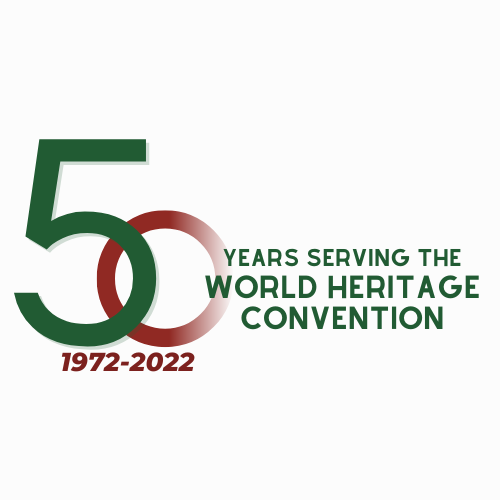Let’s celebrate the 50th anniversary of the World Heritage Convention!
 With over 1100 properties inscribed in more than 150 countries, the success of the World Heritage Convention goes beyond the initial ambition of its founders: it represents the greatest natural and cultural treasures of humanity. The adoption of the World Heritage Convention in 1972 has proven to be an extraordinarily powerful tool with inscribing and celebrating as well as monitoring and protecting heritage.
With over 1100 properties inscribed in more than 150 countries, the success of the World Heritage Convention goes beyond the initial ambition of its founders: it represents the greatest natural and cultural treasures of humanity. The adoption of the World Heritage Convention in 1972 has proven to be an extraordinarily powerful tool with inscribing and celebrating as well as monitoring and protecting heritage.
As the lead international organization dedicated to the conservation of cultural heritage, ICOMOS was designated from its inception as an advisory body to the World Heritage Committee. For 50 years, ICOMOS has been putting the experience, skills and commitment of 10,000+ members from around the world – both at the national and international levels – in service to the World Heritage Convention.
We invite you to celebrate the successes and challenges, strengths and achievements of the World Heritage Convention and the role and contribution of ICOMOS.
Send us your stories about how the World Heritage Convention influences your professional practice. What does it mean to you?
We are asking all ICOMOS members to share their most impactful stories from the last 50 years and the next 50 years to come. Tell us what you have experienced and hope to see in the future.
Suggested topics:
- Safeguarding cultural heritage: which best practices are followed/exist in your community? In your own words, why is it essential that we preserve our heritage for the future?
- Indigenous heritage: how have local communities protected cultural heritage? What are examples of people-centered approaches?
- Sustainable development: how does heritage conservation relate to sustainable development?
- Raising awareness: what advice would you give to younger generations? Who inspired you?
Format:
Send your story to 50whc[at]icomos.org. In the email, include your full name (first name and last name), your National Committee (or country/territory if you are an ICOMOS member at-large) and select one of the following formats:
- A maximum of 2 high-resolution photographs or graphics (300 ppi) with a short caption (25-30 words) and the image credits. Make sure that you own the rights to the images or the permission to use.
- Anecdotes, stories, memories, quotes (100-200 words).
Your submissions will be curated by the ICOMOS International Secretariat and posted on ICOMOS social media (Instagram, Facebook, Twitter) within the framework of the celebration of the 50th anniversary of the World Heritage Convention.
By submitting to the ICOMOS International Secretariat, you agree that:
- the ICOMOS International Secretariat reserves the right to edit, proofread and modify your submission before posting and;
- that your submission and personal data (name and country) can be shared on ICOMOS social media.
See also